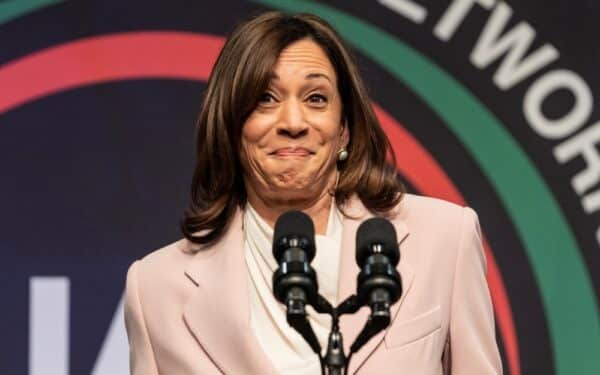What is it about the BBC and its female presenters? As another four women launched a legal fight against the corporation this week, it was hard to escape the conclusion that the Beeb has a deeply entrenched sex-based bias.
The last time we saw the familiar faces of Martine Croxall, Kasia Madera and Karin Giannone – the fourth, Anita McVeigh, is back on air – was about a year ago when they were unceremoniously dumped in what they claim was a rigged recruitment process.
They are seeking damages on the grounds of age and sex discrimination, as well as discrimination over trade union activities. The equal pay element of their case was thrown out by a judge this week but the women will be heard before a full tribunal that begins in March 2025.
They also allege they suffered harassment, with a “hostile, degrading, intimidating environment in the workplace” causing them ill-health and reputational damage.
When these four, and other senior presenters, including a handful of men, were told they would need to reapply for their jobs in a BBC shake-up, it seemed an unnecessarily harsh way to treat long-serving employees.
The rationale was the merging of the domestic BBC News Channel and the World Service, presumably to save money, with only five anchor roles available.
Croxall and co didn’t make the grade and signed off, in her case, after more than 30 years with the broadcaster.
For viewers, it soon became apparent that the seasoned professionals we’d become accustomed to were being replaced, in large part, by a team picked from the international cohort, little known and less experienced.
And less expensive. Though as a BBC staffer, the inestimable Croxall was apparently on £139,000, a very decent but hardly footballer size salary compared to male counterparts with her track record.
I can’t be the only viewer delighted to see her and her fellow presenters again this week, refusing to take their tantamount dismissal on the chin. (And equally delighted that the revamped BBC news coverage with its line-up of nonentities bombed in the ratings, post-purge.)
Croxall, who rightly argues that the “redundancies” were a sham because their jobs still exist, told the preliminary employment tribunal that the corporation “grinds you down – it breaks you”.
Particularly, it seems, if you are a woman. Croxall had been through three pay disputes with management and claimed discrimination was “baked in” to the BBC’s pay structures.
She follows a steady stream of wronged women at the BBC who have had to fight for equal pay after discovering the disproportionate remuneration of their male colleagues doing the same work.
Sarah Montagu won a £400,000 settlement in 2020 – and an apology – from BBC bosses following what she called a “long period of stressful negotiations”.
A Today programme host for 21 years, she learnt that her co-host John Humphrys – who also presented Mastermind – was being paid up to £650,000 while she didn’t even make the list of on-air talent earning £150,000 or more.
Published under government duress in the summer of 2017, the list revealed there was just one woman among the 10 highest-paid employees.
Montagu, who currently presents the BBC’s World at One show, survived the ordeal, as did Samira Ahmed, who successfully contested the gap between her £440-an-episode for presenting Newswatch and the £3,000 an episode Jeremy Vine received for hosting the similar Points of View.
As a competitive media outlet, the BBC must have some stars and, just as newspapers award top columnists top pay, the broadcaster will always cherish its best performers, and not only financially.
Compare the kid gloves treatment of Gary Lineker, often accused of being in breach of the corporation’s non-partiality rules, with the brutal rejection of Croxall for all her decades of duty (and one little slip in October 2022 when she was overly “gleeful” at Boris Johnson’s demise).
And then there is Huw Edwards (salary before his recent resignation: £435,000-£439,999) but better not delve there, as the BBC itself has found.
Even given the elevation of a few big names, the disparity is too great and too glaringly tipped in favour of the men for any plausible justification of its practices by the public broadcaster.
To cite yet another example, remember the former China editor Carrie Gracie? When she discovered other international editors, including Jon Sopel in North America, were being paid more than her she accused the BBC of having a “secretive and illegal pay culture”.
They admitted she was underpaid and offered to give her a rise but she’d had enough and quit, her exit accompanied by accidentally overheard male banter between Humphrys and Sopel, outraged they may have to forfeit some of their own pay in the fall-out.
As a taxpayer-funded organisation, the BBC should be a standard bearer not breaker, but, as Samira Ahmed says she was told by a manager, “the BBC doesn’t do equal pay”.
This appears to be borne out by the 120 female employees, inadvertently revealed during the Ahmed hearing in 2017, to have pursued gender pay complaints against the corporation, and a further 20 cases the National Union of Journalists said were heading to tribunal.
In the years since, nothing seems to have changed. Will the high-profile challenge led by Croxall be a turning point? We will be watching the news very closely next March to find out.
Write to us with your comments to be considered for publication at letters@reaction.life





